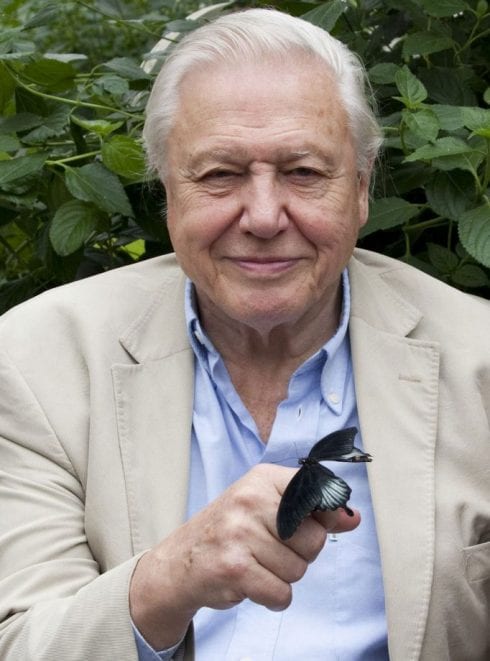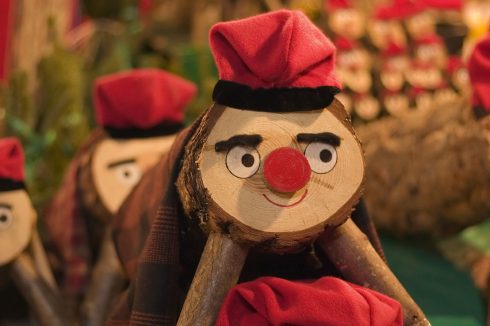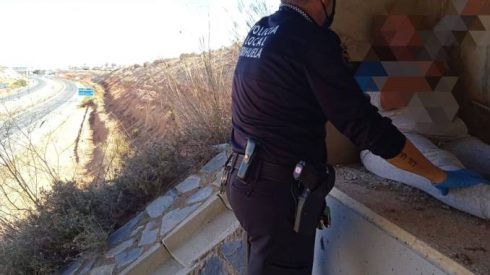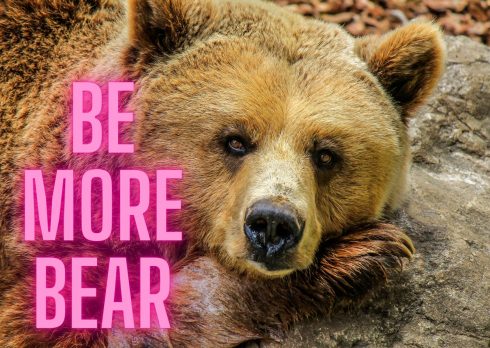HE’S too modest for shining armour but Sir David Attenborough is a true hero of our times writes Belinda Beckett
I WAS looking forward to switching off from Covid coverage this month and over to Netflix for a dose of Sir David Attenborough’s soothing voice and infectious enthusiasm for everything that slithers, crawls or photosynthesises on Earth. But A Life on Our Planet, his 80 minute ‘witness statement and vision of the future’ dealing with other scary C-Words – Climate Change Crisis – made depressing viewing.
Stark footage of a lone orangutan clinging to a solitary tree in a devastated rainforest said it all. And how terrible that 70% of birds on the planet are battery chickens.
Wild animal populations have more than halved in the 66 years since the 94-year-old naturalist began his career at the fledgling BBC, making him as old as the TV channel itself.

My hero since black and white Zoo Quest days (1954-63), I watched this monochrome Adonis hacking through jungles in a safari suit collecting rare species for London Zoo, all very un-pc now of course. These exotic creatures would then be presented, live and unscripted, in the studio – always good for a giggle.
Each trip in two-engined Dakota DC3s took three months to film, the budget for the crew of six was £1,000 and their clockwork film camera had to be rewound every 40 seconds. ‘But the main problem was smuggling all these animals into our hotel rooms,” Attenborough writes in his entertaining autobiography, A Life on Air.
‘We put pythons and anacondas in sacks under our beds, armadillos in the bath and had bats hanging up on the curtains,’ he relates. ‘In Madagascar I found some marvellous things called pill millipedes, about the size of a golf ball. They escaped overnight and there were pill millipedes everywhere. I got into a lot of trouble for that!’
Returning from a trip in Paraguay, unusually on a First Class-only plane (he always flies economy unless his crew can be upgraded), the journey took longer than expected and the armadillo food ran out. “The hostess said, ‘Oh, how awful! But we’ve only got caviar and Californian peaches’,” writes Attenborough. “I replied, ‘That’s funny, that’s exactly what armadillos like!’ So that’s what they ate, all the way to New York! “
People often forget that Sir David (who writes his own scripts and the companion books to every series) was also a ‘suit’ at the BBC. As Director of Programmes and Controller of BBC Two he gave us Match of the Day, Whicker’s World, Monty Python’s Flying Circus and Pot Black.
He’s also the most widely-travelled human in history, clocking up mileage equivalent to 10 global circumnavigations for his epic Life series of nine programmes and 79 episodes, aired over four decades.
He has two knighthoods, 32 honorary degrees, 11 sets of letters after his name, and over 20 species christened after him will remind us who he was after he’s gone.
He also knows a thing or two about science but will we listen to it? Going by our track record with coronavirus, probably not.
But perhaps later, when southern Spain has turned to desert and the Arctic has melted, our grandchildren’s grandchildren will chance upon archive footage of his Messianic documentary and realise that here was a man who knew what he was talking about.








